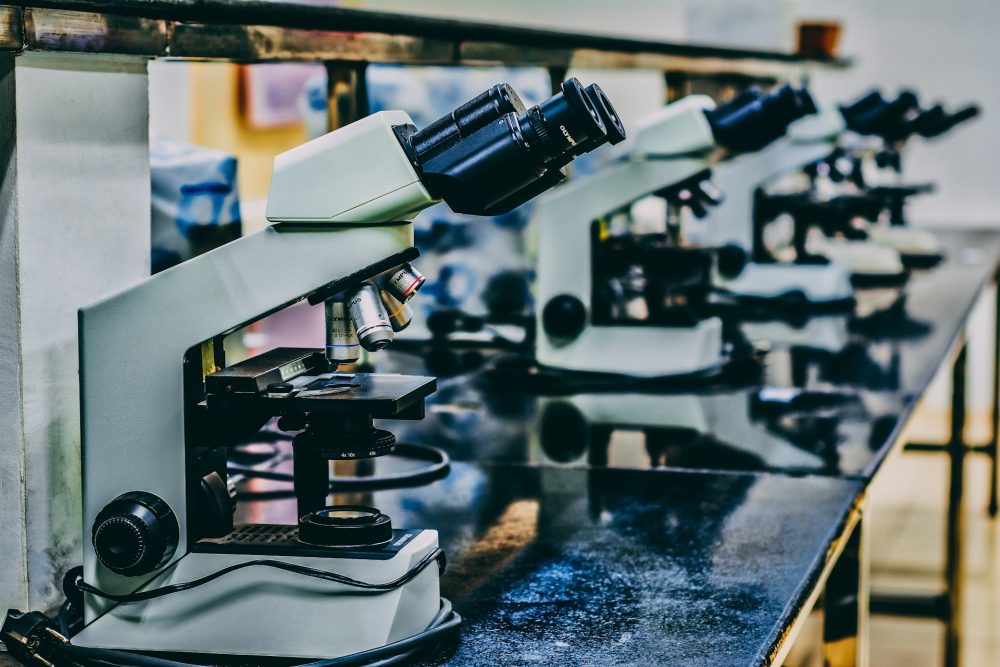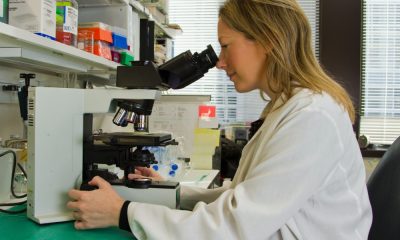Biotech
Owkin and Servier Challenge Glioblastoma with the Power of AI
Owkin, in partnership with Servier, is organizing a global AI hackathon to accelerate glioblastoma research. Over 100 experts will analyze patient data, including multi-omics and spatial imaging, to develop innovative solutions. Supported by AWS, Bioptimus, and major research institutes, this initiative aims to revolutionize treatments for this aggressive brain cancer.

Owkin, the first biotech company specializing in artificial intelligence applied to drug discovery and development and precision diagnostics, is organizing, in partnership with Servier, a global pharmaceutical company governed by a foundation, an exceptional hackathon as part of the “AI Convergence” challenges selected by Bruno Bonnell, Secretary General for Investment, in charge of France 2030 and Anne Bouverot, Special Envoy of the President of the Republic for the Summit for Action on AI.
More than 100 international experts are joining forces to explore glioblastoma, the most common and aggressive brain tumor. Their goal: to identify promising leads that will be unveiled a few days later at the summit.
Owkin event mobilizes the best specialists in AI and glioblastoma worldwide
On the occasion of the AI Action Summit, this hackathon is a unique opportunity to bring together the driving forces of the Data/AI sector to work together to emerge innovative solutions and accelerate the development of treatments for glioblastoma, by harnessing the power of AI.
In partnership with Servier and with the support of Amazon Web Services (AWS), 10X Genomics, Parker Institute for Cancer Immunotherapy and Bioptimus, this hackathon represents a formidable catalyst for making major advances against glioblastoma, a particularly aggressive form of brain cancer, for which research has stagnated for 20 years.
To make Owkin’s initiative a reality, the company launched an international call for projects via social networks at the end of December, which was a great success, attracting nearly 300 applications from 25 countries in Europe and North America.
Among the hundred or so selected participants are data scientists, neuro-oncologists, experts in computational medicine, and clinical research from renowned institutions and research centers specializing in oncology such as: the Paris Brain Institute (ICM), Gustave Roussy, the Institut Curie, the Francis Crick Institute (United Kingdom), the Max Planck Institute (Germany), the Netherlands Cancer Institute, and INRIA.
Participants have access to an exclusive set of patient data
For the first time, Owkin will provide access to a subset of the data generated by the MOSAIC initiative (the world’s largest spatial multi-omics atlas for cancer research), multimodal data from 115 glioblastoma patients (including spatial transcriptomics combined with single cell sequencing, histological images, whole exome sequencing, and clinical data). Participants will also be able to draw on spatial proteomic data provided by the Parker Institute for Cancer Immunotherapy from the BRUCE cohort.
The challenge is to use the multimodal dataset to develop a project that will advance research in areas such as the underlying biology of glioblastoma, predicting patient survival, or the methodological challenges associated with processing spatial and multi-omics data.
The two datasets combined provide unprecedented insight into the tumor microenvironment of glioblastoma patients. The hackathon organized by Owkin is made possible by the support of Amazon Web Services (AWS), including infrastructure and computing capacity. Finally, through a partnership with Bioptimus, participants will also have access to cutting-edge foundation model technology, making this hackathon a catalyst for transformative innovations in glioblastoma research.
Glioblastoma: a major medical and scientific challenge
Each year in France, approximately 3,500 people are diagnosed with glioblastoma and approximately 250,000 people worldwide. This cancer, the most common among brain tumors, is distinguished by its extreme aggressiveness. Despite treatment combining surgery, medication and radiotherapy, relapses are almost systematic. The average survival time after these standard treatments remains less than two years.
For Anne Bouverot, special envoy of the President of the Republic for the Summit for Action on AI: “This initiative illustrates the potential of artificial intelligence to transform medical research and address the most complex challenges, such as glioblastoma. By bringing together experts, researchers and innovative talents from around the world, Owkin shows that France is not only at the forefront of AI, but also committed to putting these advances at the service of patients. On this World Cancer Day, it is a wonderful demonstration of hope and progress for science and health.”
Thomas Clozel, CEO of Owkin, said: “Glioblastoma is one of the most difficult cancers to treat, due to its immense heterogeneity and the complexity of its biology that is still largely misunderstood. Despite over 400 clinical trials conducted since 2005, progress has remained limited, highlighting the critical need for new therapeutic approaches.”
“Currently, with access to robust patient datasets, cutting-edge new modalities such as multi-omics spatial imaging, advanced artificial intelligence tools and AI agents, we have an unprecedented opportunity to make significant breakthroughs in this field. By fostering open-source science and exploring ways to automate key processes in pharmaceutical research, this hackathon is a true moonshot – bringing together brilliant minds to redefine glioblastoma research and bring hope to patients around the world.”
For Claude Bertrand, Executive Vice President Research & Development, Chief Scientific Officer at Servier: “The hackathon that we are organizing in partnership with Owkin is an illustration of our R&D strategy in oncology, focused on the development of targeted therapies in rare forms of cancer. In this sense, we are also convinced of the power of collaboration and interdisciplinarity that defines the research environment and allows, thanks to its catalytic effect, to generate more innovation, faster and always for the benefit of patients. “
With nearly 70% of its R&D budget allocated to oncology, Servier now has a portfolio of drugs targeting cancers that meet high unmet medical needs for patients. In addition, these major investments by the Group are now reflected in a promising pipeline of 30 R&D projects in oncology (as of December 2024), 11 of which have the potential to become “first in class” drugs (drugs with a new and unique mechanism of action).
The Group is also convinced that the combination of scientific innovation and advanced digital technologies, particularly artificial intelligence, will make it possible to bring innovative treatments to patients more quickly, as well as increasingly personalized solutions.
__
(Featured image by Ousa Chea via Unsplash)
DISCLAIMER: This article was written by a third party contributor and does not reflect the opinion of Born2Invest, its management, staff or its associates. Please review our disclaimer for more information.
This article may include forward-looking statements. These forward-looking statements generally are identified by the words “believe,” “project,” “estimate,” “become,” “plan,” “will,” and similar expressions. These forward-looking statements involve known and unknown risks as well as uncertainties, including those discussed in the following cautionary statements and elsewhere in this article and on this site. Although the Company may believe that its expectations are based on reasonable assumptions, the actual results that the Company may achieve may differ materially from any forward-looking statements, which reflect the opinions of the management of the Company only as of the date hereof. Additionally, please make sure to read these important disclosures.
First published in MyPharma Editions. A third-party contributor translated and adapted the article from the original. In case of discrepancy, the original will prevail.
Although we made reasonable efforts to provide accurate translations, some parts may be incorrect. Born2Invest assumes no responsibility for errors, omissions or ambiguities in the translations provided on this website. Any person or entity relying on translated content does so at their own risk. Born2Invest is not responsible for losses caused by such reliance on the accuracy or reliability of translated information. If you wish to report an error or inaccuracy in the translation, we encourage you to contact us

-

 Africa6 days ago
Africa6 days agoAir Algérie Expands African Partnerships
-

 Crypto2 weeks ago
Crypto2 weeks agoEthereum Pushes AI Integration With ERC-8004 and Vision for Autonomous Agents
-

 Markets22 hours ago
Markets22 hours agoRising U.S. Debt and Growing Financial Risks
-

 Business1 week ago
Business1 week agoDow Jones Near Record Highs Amid Bullish Momentum and Bearish Long-Term Fears














